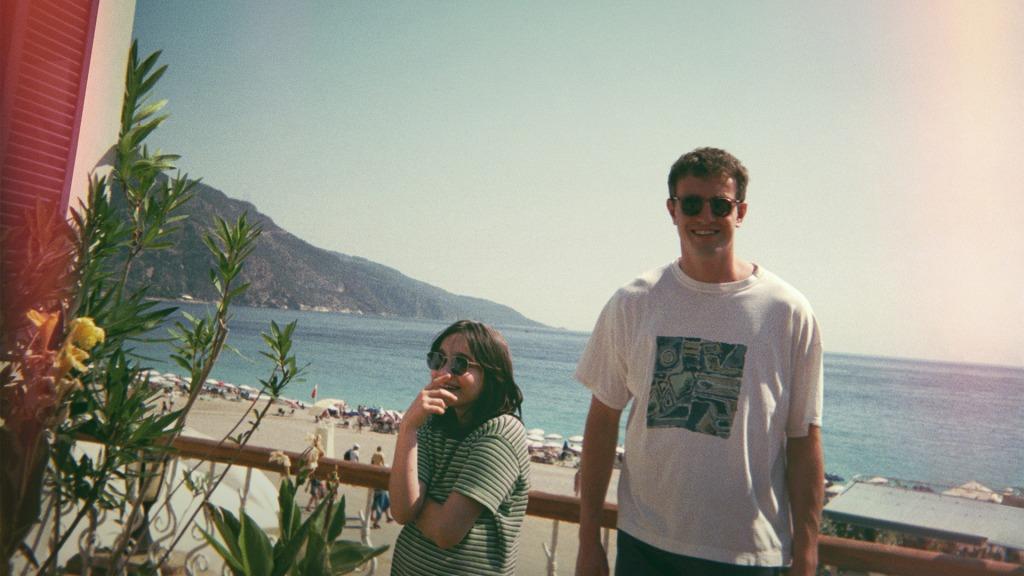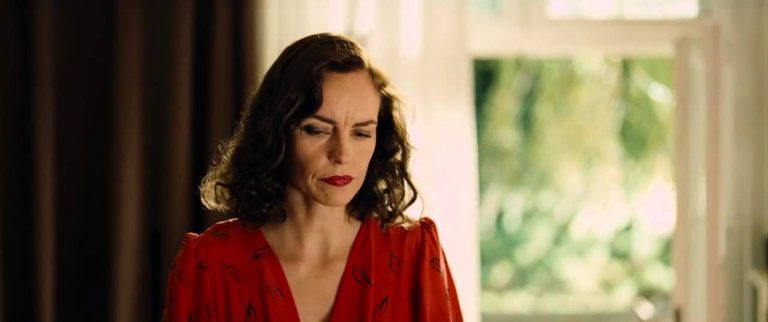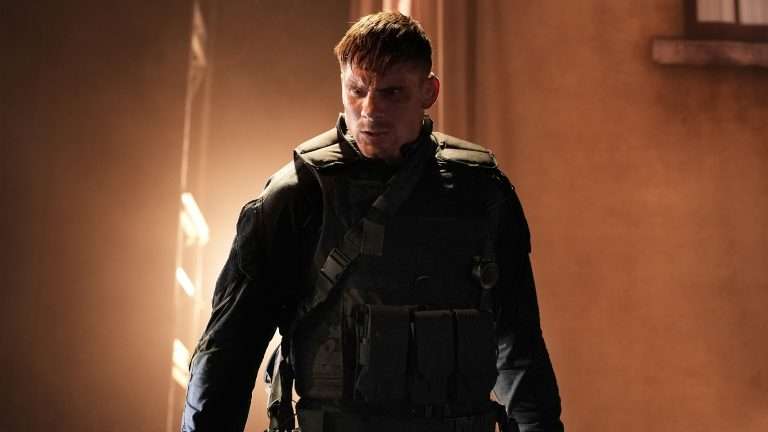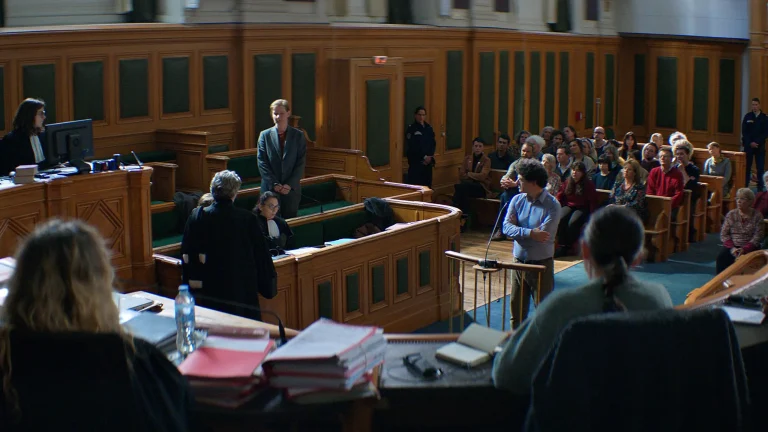“I think it’s nice we share the same sky”: Charlotte Wells’ Aftersun (2022) as a Tale of Aching (Re)Memory and Imagination.
Memory (the deliberate act of remembering) is a form of willed creation. It is not an effort to find out the way it really was–that is research. The point is to dwell on the way it appeared and why it appeared in that particular way.
-Toni Morrison, The Source of Self-Regard: Selected Essays, Speeches, and Meditations
Remembering isn’t like visiting a museum: Look! There’s the long-gone object in a glass case. Memory isn’t an archive. Even a simple memory is a cluster. Something that seemed so insignificant at the time suddenly becomes key when we remember it at a particular time later. We’re not liars or self-deceivers-OK, we are all liars and self-deceivers, but it’s a fact that our memories change as we do.
– Jeanette Winterson, Christmas Days: 12 Stories and 12 Feasts for 12 Days
In her directorial debut Aftersun (2022), Charlotte Wells builds a world that seems rather plotless, obscure, and fractured. A world that comes alive and becomes human in its monotony and memory. Aftersun is a layered homage to a father-daughter relationship which at the core of it unravels the deeper question of whether the relationship was successful or not. In her directorial debut, Wells does not allow its audience to judge the relationship directly but rather situates it in shades of gray. She invokes sympathy for both characters by allowing these characters to introspect in silence or leaving them alone to do nothing.
Wells threads the story to deal with complex issues behind the covers of this relationship, issues such as depression, dealing with struggles of life as an adult and a young parent, childhood trauma, all of these, and much more dwelling on memories and acts of remembrance and recollection.
Written and Directed by Charlotte Wells and cinematography by Gregory Oke, Aftersun is a story of a young father on vacation to Turkey with his daughter. Oke’s cinematography acts as a suitable setting to describe the mood of the vacation in the backdrop of lazy sunny beaches and summer noon walks. The audience often encounters Calum (Paul Mescal) and Sophie (Frankie Corio) enjoying a sun bath at their hotel pool or playing pool with other guests at the hotel. The camcorder acts as an object to capture those loving moments they otherwise do not get to spend with each other.
Recommended Read – Oscars 2023: All Best Picture Oscar Nominees, Ranked
However, it is only in the night, after Sophie is asleep, the audience feels a certain heaviness in the frame, something that points to Calum’s struggles as a young parent and as an individual trying to make ends meet. The small renovating hotel and a single bedroom point to his financial condition, and while one can see him arguing on the phone with the hotel staff that he booked a room with two beds while Sophie is half asleep, his condition makes one question if the call was only an attempt to justify his position to Sophie and not bring out his true financial position in front of his daughter.
Half-way through Aftersun (2022), the frame cuts to focus on the present day, where an adult Sophie can be seen in bed with her partner, bringing the realization that the film is being narrated from the point of view of both the young Sophie on vacation with her father and the adult Sophie reminiscing those memories. Sophie, who is now the same age, 31, as her father was during the trip, still tries to gauge those memories as if to understand what she did not back then. The handicam here then acts as an object to serve objectivity to the memory.
Checkout – Where to Watch and Stream Paul Mescal’s ‘Aftersun’ Online
The abstract nature of memory combines with the objectivity of the camcorder to provide an insight into the internal conflicts of these characters. Though the moments not captured by the camcorder are significant in shaping young Sophie’s feelings about her father, feelings that she seems to have carried well into her adulthood that she now attempts to untangle, revisiting them time and again. When Calum tells Sophie about his childhood and how aloof he felt when his family would even forget his birthdays until he reminded them, it makes Sophie sympathize with her father and bond on the back of these raw emotions.
However, there are moments in Aftersun that make one feel as if they are reliable tracts in the narration or ramifications of Sophie’s imagination. Sophie’s memories come from a certain sense of judgment and perspective she holds for her father. Calum’s character is as complex for the audience as it is in Sophie’s memories, and the audience knows Calum as much as Sophie allows us to know him. Wells does a fine job illustrating this sense of imagination, as the audience is unaware of what Calum thinks of his relationship with his daughter.
The frames suggest that Calum is struggling, but what is bothering him is never deeply delved into other than adult Sophie’s perspective, making the audience feel closer to Sophie and alienated from Calum. The scene where Calum looks into the mirror and spits on his image can be Sophie’s figment of imagination on how she judges her father to be as a parent or her imagination of how Calum must feel about being a ‘bad’ father. Similarly, after the sun sets, we often see Calum in a rave set-up dancing his heart out though one can not be sure if that is how he spends his evenings or is it how he does so in Sophie’s imagination. As Helen Oyeyemi writes in White is for Witching,
“One or the other of us said, ‘I can’t,’ and if it was me, I don’t know why because I wanted to. Maybe I’m just remembering it wrongly to help me get over the rejection.”
Remembering or forcing yourself to remember, rememory, often leads to what Oyeyemi describes as “remembering it wrongly to get over” something. Sophie’s memory and imagination, with a blurred line between the two, makes one question if Sophie is a reliable narrator and if her perspective is reliable or if she remembers things a certain way only to get over her past.

On one occasion, Calum returns to the hotel after drinking and passes out, leaving Sophie locked out of the room. The scene is a significant step in the story as it allows adult Sophie to look at other aspects of her pre-teen life other than her relationship with her father. While being locked out, Sophie spends time with another older adolescent girl who gives Sophie her band as a pass to enjoy free drinks and food in the hotel. Sophie continuously looks at her with admiration and a soft gaze. Following that moment is Sophie’s first kiss with a boy her age, another guest at the hotel. Later, when the frame cuts to a locked-out Sophie staring from a distance at two boys passionately kissing each other. The entire locked-out-of-the-room sequence sheds light on Sophie delicately venturing into her teenage years with a sense of exploring her sexuality.
Imagination plays a critical role in shaping Calum in the film. The conversations, such as the one they have the next morning during the mud bath after Sophie was locked out the previous night, present the guilt of a father apparently failing even in such a short span of the vacation. However, the silence in the frames allows us to encounter the characters’ reality and complexities. It is not in the dialogue that one finds their relationship’s complexity and struggles in the existing societal setups, but the silence speaks volumes. The otherwise monotonous life is critical in presenting what is not shown directly on the screen. As Jeanette Winterson writes in Sexing the Cherry,
“You remember that definition of fishnet as holes held together by a string? I am interested in the holes. The string is narrative, but the spaces are what matters. It is the same with a Barbara Hepworth sculpture; the rock is there so that you can see the space.”
This is what truly describes Wells’ Aftersun. The monotonous lazy days exist to allow the audience to see beyond them, to gaze into the void, and to hear what is not being said. While Calum never truly expresses how he feels or Sophie never tells us what she thinks of her father, and while they seem happy enjoying each other’s company, having the best time of their lives on the vacation, it is in the silent frames and expressions one feels the heaviness and fragility of the relationship right to the end.
The ending of Aftersun is emblematic of the alienation Sophie feels from her father both as a young girl and as an adult. The fractured reality that the audience can peep into through the flashing lights and loud music offers a partial scoop into Calum’s world after the sun sets. The scene with Calum and young Sophie dancing together on the last day of their trip with continuous back and forth to the adult Sophie moving towards her dancing father in a deluge of people conveys the metaphor of Sophie trying to look for her father’s identity. Sophie ultimately pushes her father into a void, hiding him from her rememory yet again. Still, there he is again with the camcorder in hand, bidding goodbye to his daughter and going back to the dancefloor in Sophie’s mind.
Aftersun (2022) is an aching tale of recollection and trying to make sense of your loved ones’ life and reality. The audience does not know where Calum is now or what transpired between the trip and the present day, but the aching and grief are still visible in the unseen. Even though the young father and her daughter want to make it work, they have to live only with the satisfaction that they “share the same sky.”
Related Read: Aftersun Soundtrack: Every Song Featured in the Movie
Aftersun (2022) Movie Links: IMDb, Rotten Tomatoes
Aftersun (2022) Movie Cast: Paul Mescal, Frankie Corio, Celia Rowlson-Hall





![Ajagajantharam [2022] SonyLIV Review: A film that embraces its trippy chaos](https://79468c92.delivery.rocketcdn.me/wp-content/uploads/2022/02/Ajagajantharam-SonyLIV-2-768x432.jpg)
![12 Monkeys [1995] Review – An Intriguing Dystopian Tale by a Masterful Fantasist](https://79468c92.delivery.rocketcdn.me/wp-content/uploads/2020/10/Twelve-Monekys-1995-768x512.jpg)